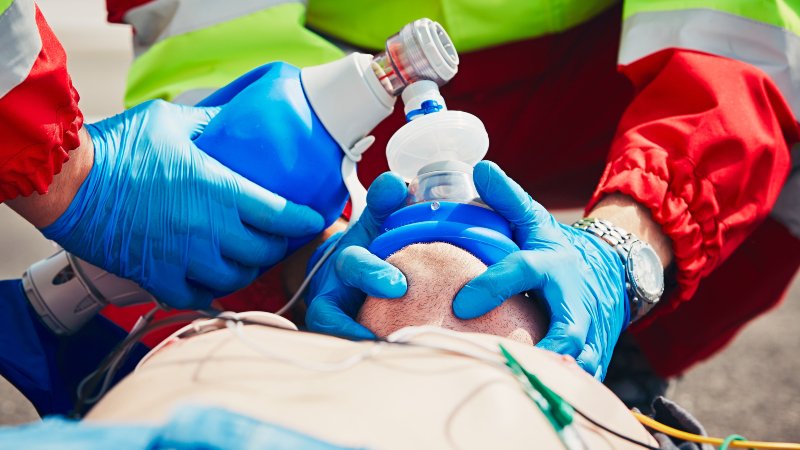With the number of outbreaks rising and the need for increased prevention measures, here are some of the ways first responders are now responding to emergency calls and what you can expect.

By Joel Sellinger, Firefighter and Founder of LifeDoor
Preventing the spread of the Coronavirus is a high priority for Firefighters and emergency medical services (EMS) workers. With the number of outbreaks rising and the need for increased prevention measures, here are some of the ways first responders are now responding to emergency calls and what you can expect, should you need their help.
ON-CALL PRECAUTIONS:
1. Limited Contact with Patient: A limited number of responders will make contact with the patient. If possible, all members will remain a minimum of six feet away from the patient. If care is needed, only one member is to make physical contact with the patient.
2. Asking Questions: Crews will ask those nearby and household members questions regarding the condition of the patient, type of illness, recent travel, or any known contact with Coronavirus patients.
3. Working Outside When Possible: First responders will ask patients to come outside of the residence for care, rather than go inside.
4. Opening Windows and Doors If Inside: If first responders need to go inside a residence, they will open all windows and doors to increase fresh air circulation.
5. Ambulance Precautions: Ambulances will be equipped with plastic sheeting separating the driver’s compartment from the patient. Plastic sheeting will also be placed over medical equipment in ambulances.
In Addition:
– Expect temporary triage tents outside hospitals, in order to screen patients before they enter the emergency department.
– Expect longer than normal ER waits because of an increase in volume from Coronavirus concerns.
NEW GEAR PROTOCOLS:
Firefighters and first responders are wearing additional gear, depending on the types of calls they respond to.
1. Nitrile EMS Gloves (for all calls)
Nitrile gloves will be worn to protect first responders in case they have any cuts.
2. Safety Glasses/Goggles:
– Safety glasses are to be worn for regular calls.
– Safety goggles are to be worn for communal living facilities, nursing homes, jails, assisted living facilities, etc.
3. N95 Masks (for respiratory calls, communal living facilities, jails, nursing homes, etc.)
N95 masks are masks that filter out fine particles and help prevent the transmission of viruses. They are specially fitted to firefighters and EMS members and required for these types of emergencies.
4. Masks for Patients (for respiratory calls, communal living facilities, jails, nursing homes, etc.)
Masks will be put onto patients if they’re able to wear one, as soon as possible.
5. For Known or Suspected Coronavirus Cases
For patients known to have or suspected of having the Coronavirus, firefighters will use all of the above gear, plus wear a full gown and disposable booties.
PERSONAL PRECAUTIONS FOR STAYING SAFE:
In addition to the above, here are some daily safety practices you can practice at home and at work:
1. Wash your hands regularly and before eating.
2. Avoid touching your face.
3. Stay home if you’re sick.
4. Avoid handshakes.
5. Avoid contact with people who are sick.
6. Cover your cough or sneeze with a tissue, then throw the tissue in the trash.
7. Clean and disinfect frequently touched objects and surfaces regularly using a household cleaning spray or wipes containing alcohol.
8. Don’t wear a facemask if you’re well.
9. If soap and water are not readily available, use alcohol-based hand sanitizer with at least 60% alcohol.
For additional information about the Coronavirus, visit the CDC website: https://www.cdc.gov/coronavirus/2019-ncov/index.html
—
This content is a press release and may appear elsewhere.
—
Have you read the original anthology that was the catalyst for The Good Men Project? Buy here: The Good Men Project: Real Stories from the Front Lines of Modern Manhood
◊♦◊
If you believe in the work we are doing here at The Good Men Project and want to join our calls, please join us as a Premium Member, today.
All Premium Members get to view The Good Men Project with NO ADS.
Need more info? A complete list of benefits is here.
—
Photo credit: Shutterstock

